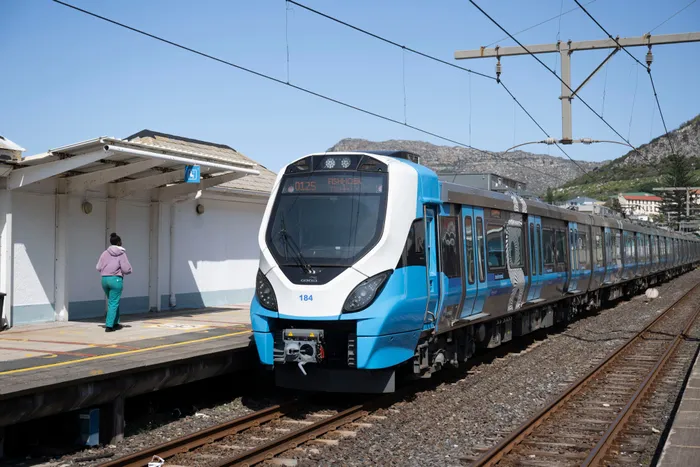South Africa's passenger rail modernisation: Minister Creecy invites private investment

Transport Minister Barbara Creecy has released Requests for Information (RFI) for ideas and investment from the private sector to modernise the Passenger Rail Agency of South Africa.
Image: File
Transport Minister Barbara Creecy has announced a plan to bring private investment into South Africa’s struggling passenger rail system, a move she described as essential to restoring reliability, modernising services, and driving economic growth.
Unveiling the initiative in Pretoria on Sunday, Creecy launched a new series of Requests for Information (RFIs) that invite private sector proposals to help rebuild and operate parts of the Passenger Rail Agency of South Africa (PRASA) network. The announcement coincided with the release of results from an earlier freight rail and port RFI, which attracted 162 submissions from both local and international investors.
“We are releasing Requests for Information for potential private partners who are interested in investing in our passenger rail system,” Creecy said. “PRASA requires additional investment that cannot be carried by the fiscus alone.”
Creecy said PRASA had successfully reopened 35 of its 40 passenger corridors by the end of May 2023, with 77 million annual passenger journeys recorded, but added that the system still needed “innovative ideas and solutions” to sustain its recovery.
The new RFIs cover a range of modernisation projects designed to improve efficiency, technology, and safety while expanding access to affordable transport.
A key focus is the introduction of a smart ticketing system that will allow commuters to use a single tap-and-go card across trains, buses, and taxis.
“No more queues or paper tickets, just one account-based system that makes travel easier and helps us manage revenue transparently and efficiently,” Creecy said.
The department is also seeking private investment to upgrade PRASA’s major depots at Braamfontein and Wolmerton, which she said would “mean faster train repairs, better reliability, and new investment in nearby areas, creating jobs and boosting local development.”
Creecy further announced plans to commercialise PRASA’s fibre-optic network, installed alongside its railway lines as part of a new signalling system. “We’re opening the door for private partners to help us turn that network into a source of income by offering broadband and digital services, while strengthening safety and real-time communication across the rail system,” she said.
In a move aimed at regional integration, Creecy revealed plans to develop new regional rapid train services connecting cities such as Johannesburg, Pretoria, Polokwane, Musina, Mbombela, and Durban. Using upgraded existing lines and new high-speed routes, the project envisions trains travelling up to 200 km/h and testing the viability of a 300 km/h link between Johannesburg and Durban.
“These lines will shorten travel times, reduce travel costs, take pressure off our roads, and stimulate new development in towns along each route,” she said, adding that the projects “are not possible without private sector partnerships.”
PRASA will also invite private operators to lease and manage its rolling stock, including the new blue trains built at Gibela’s Nigel factory and older yellow trains to be repurposed for new uses. Creecy said this would support South Africa’s goal of becoming “Africa’s leading train builder” and a regional export hub in line with the African Union’s 2015 resolution.
“These RFIs are not tenders, they are an invitation for the market to help us design the future of rail,” Creecy emphasised.
She confirmed that Transnet would issue its first freight-related Request for Proposal before the end of 2025, followed by three more in early 2026, as part of the government’s broader Freight Logistics Roadmap and National Rail Policy.